
Are Latino restaurateurs in Los Angeles feeling economically irrelevant?
Economic irrelevancy is a term used to describe the situation where small-scale farmers and ranchers feel marginalized and insignificant within the larger, corporate-dominated food system.
It suggests that their contributions are often overlooked or undervalued in the broader economic landscape. This can lead to challenges in securing fair prices for their products, accessing markets and maintaining their livelihoods.
If we apply the same term to the Los Angeles restaurant industry and Latinos within the field, Jesse Gómez’s story offers a window into the issue.
According to PYMNTS, restaurant bankruptcies are reportedly at their highest level since the pandemic.
In 2012, I was commissioned to interview Gómez, a restaurateur with one restaurant at the time, Yxta, located near downtown Los Angeles’s Skid Row. Gómez was able to scale to eight restaurants in Southern California, but after the pandemic, things slowed down significantly.
Today, he has three high-quality restaurants, located in Manhattan Beach, Pasadena and Hollywood. As a Chicano serving upscale Mexican food, like Guacamole con Granada, Gómez's vision was more geared to be successful in the Houston's/Hillstone Restaurant Group/George Biel model.

In an exclusive for CALÓ News, I interviewed Jesse at his restaurant in Manhattan Beach:
When you first started out, were you and Chef José Acevedo attempting to bring a healthier, more nutritious offering to Los Angeles? Did you want to feed people healthy food?
I definitely wanted to feed people good Mexican food. I didn’t want it to be greasy but it’s not a healthy concept. People don’t go to our restaurant to eat healthy food but we do have a lighter side and in general, we are cleaner than most other Mexican food in Los Angeles.
Did you and Chef José have a conversation about wanting to have deep relationships with your farmers and purveyors?
In the beginning, when we had one restaurant, Chef José used to walk the Santa Monica farmer’s market for that reason specifically. He would buy flor de calabaza directly. Over time, when we expanded to eight restaurants, that became a chore. But our produce purveyors started getting the same high-quality organic ingredients so it became easier to order from them. We had to balance out due to our growth.
What happened to your business after COVID?
There was a boom that came from reopening. From take-out only, to semi-indoors, to full operation, it started getting better and better. Like with any boom, there was a crash at some point. The crash was bigger than the boom. We are still in the crash. In my world of restaurants in L.A., I hear that everybody is still in the post-COVID crash.
How many restaurants did you close post-COVID?

Three. We closed them earlier this year. The restaurants never fully recovered post-COVID. Each location had different reasons for their inability to recover. We used to do huge office lunches and great daily happy hours and those died out. Those groups of eight or ten teachers gathering to have beers and tacos stopped coming. For Yxta, we were on Skid Row and during COVID, Skid Row got five times worse than before. I had customers telling me that they simply didn’t want to be confronted with the aggressiveness of the folks on Skid Row. Or to go on to Skid Row at night. They were fed up. It just became dangerous. L.A. homelessness got really bad during COVID. Fires. People getting attacked. Really unfortunate for everybody.
You scaled to eight restaurants, and you are now at three restaurants, what are your expectations for the greater business?
The hard part for me now is that I have a four-year-old daughter. I have never opened a restaurant with a child. The first 90 days at launch and pre-launch are hell and I don’t think I can do it when I am prioritizing her. However, I do think that Chef José and I have more restaurants in us. There are so many vacant places but there are no deals out there. There are a lot of negatives to opening a new business. I know what it takes. The risk, the stress … I am being very careful. The deal has to be too good to be true.
Talk to me about your relationship with the media….
A love/hate relationship. We had PR when we started. I don’t know if we got reviews in the media because of our PR or if it was organic. At some point, we decided to stop paying thousands of dollars per month for coverage. I couldn’t calculate the return. We focused on in-restaurant investment. If you give a four-person family a great meal, they will talk about the restaurant. We chose that strategy. If we continuously do it well, we will get on the top ten lists for Mexican restaurants in L.A.
The hate part is that I have a story. Chef José has a story. I’ve been in this game for twenty-five years and I have opened and managed a dozen restaurants, eight as an owner-operator restaurateur. I come from a family that owned a restaurant in L.A. for fifty years. I am native to Los Angeles. I am a local in the mix in Los Angeles. What I see happening is that you see a lot of transplants coming in and getting twenty times the coverage. They become “famous L.A. Chefs” with awards. They can’t even stay in business but they get these enormous reviews and features that we just don’t get.
Let’s push it to these high-profile critic reviews like Irene Verbilia at the L.A. Times or Ruth Reichl in the N.Y. Times, do you get those?

We got one. Patric Kuh in Los Angeles Magazine. This was a huge deal. That heat carried us for eight years. That helped us scale to eight restaurants. It was really powerful. Even today, in a social media world, it creates a boom. But Chef José and I see it as a bonus. We never set out to become celebrities because of our food. There are famous celebrity chefs on TV and Instagram and they don’t have a restaurant. They don’t cook for the public. They don’t want to deal with the aggravation of employees, pre, and getting up at 7 am. Some folks can get like five thousand bucks for promoting a product on a video and they are good. It’s an easy way out. We are focused on running restaurants, the buildings, the menus and supporting the employees. But I get it. I show my mom when I get featured. It’s ego-shit, but it has an impact and we haven’t gotten a lot of it. The lack of publicity hurt us a lot in the beginning. At Yxta, we were still very mom-and-pop. I think we still are. Especially compared to our neighbors like Joey in Manhattan Beach.
Jesse Gómez and Chef José Acevedo are the owners of Mercado with three locations. Details
140 S. Lake Avenue #101, Pasadena, CA 91101
3413 Cahuenga Boulevard, West Hollywood, CA 90068
3212A N. Sepulveda Boulevard, Manhattan Beach, CA 90266

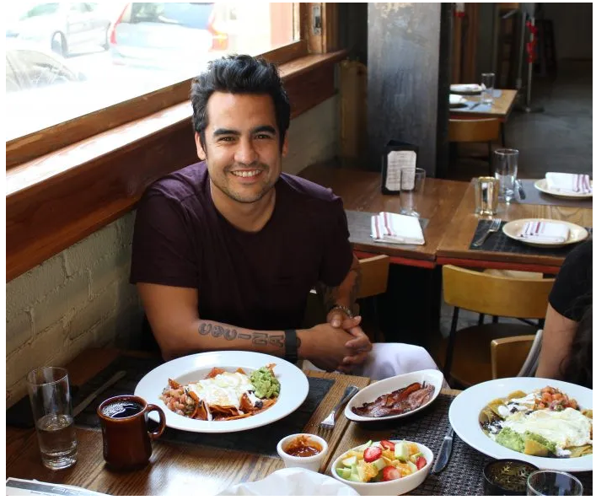
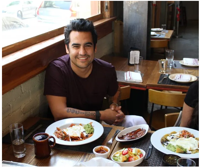
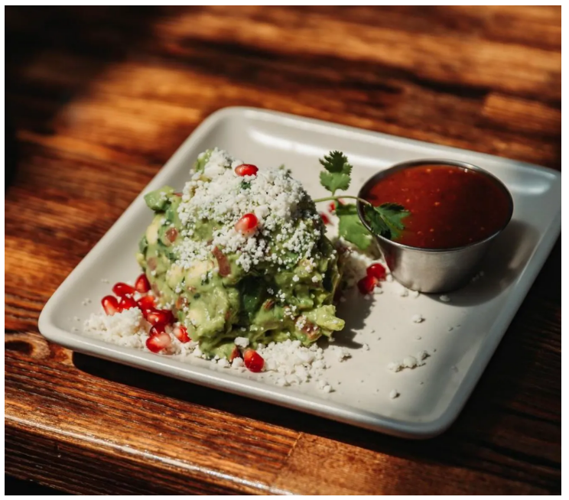
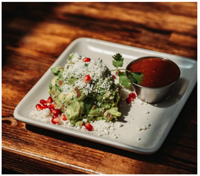

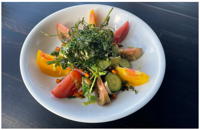
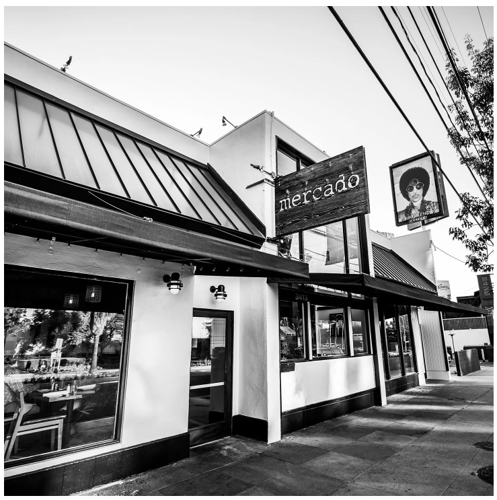
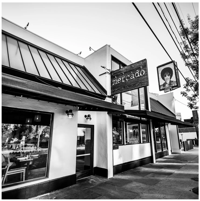








(0) comments
Welcome to the discussion.
Log In
Keep it Clean. Please avoid obscene, vulgar, lewd, racist or sexually-oriented language.
PLEASE TURN OFF YOUR CAPS LOCK.
Don't Threaten. Threats of harming another person will not be tolerated.
Be Truthful. Don't knowingly lie about anyone or anything.
Be Nice. No racism, sexism or any sort of -ism that is degrading to another person.
Be Proactive. Use the 'Report' link on each comment to let us know of abusive posts.
Share with Us. We'd love to hear eyewitness accounts, the history behind an article.